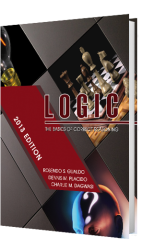-

A Reflection Manual on Philosophy of the Human Person (Placido)
Authors: Dennis M. Placido, Charlie M. Dagwasi, Shierwin A. Cabunilas, Asisclo M. Abonado III
Philosophy is life. It is a search for meaningful existence. It is mapping out our way towards meaningful and significant existence. It aims to clarify our human understanding of anything, including ourselves. It is from these claims that this workbook, A Reflection Manual on Philosophy of Man is intended: to make that way of life realizable in the context of college students. The method in philosophizing and in the understanding of the human person is activity-driven that involves understanding by doing.
Since philosophy is art itself, the tools for understanding include seeing, reflecting and acting. Since the workbook is thematic, each theme involves the three tools: seeing involves the observations, the phenomena, or the raw experiences that provoke some inquiries in understanding better our humanity; reflecting includes integrating and clarifying the experiences within philosophical insights regarding the human person; and acting entails the creating of personal insights regarding the judgment drawn from seeing and reflection. The act part involves a personal contribution to the enrichment of understanding the human person.
Philosophy is also the love and pursuit of wisdom. As such, the method employed in this workbook is phenomenological in the sense that it intends to present being as the underlying reality in human consciousness. It presents a description of the phenomenon of the human world, yet hermeneutically analyzed within the context of philosophical reflections. The study of the human person is critical and reflective on the human person's nature and unique existence. It provides foundations for a deeper understanding of what and who the human person is, and what it means to be fully human.
The workbook is geared to accomplish several general objectives: First, it aims to introduce the students to the different perspectives about the human reality; it also aims to enable the students to cultivate the habit of critical thinking and free inquiry on the human person; 3) (It is also) to integrate the student's learning of the human person in other disciplines and at the same time to enable the students to attain a profound understanding about their human experiences. The students are also given the opportunity to analyze and reflect on philosophical insights through reading philosophical texts; and, (4) finally the workbook aims to develop in the students the skills of critical thinking through writing their philosophical insights about the human person.
By using the workbook, students are geared to attain these competencies: a) understanding various views on the human person and their implications; b) an informed perspective on the human person; c) improved verbal and written skills in constructing arguments; and d) a disciplined approach, through research, in discussing issues hounding human existence.
The workbook thematically addresses the human project regarding: human becoming, freedom, transcendence, egoity, embodiedness, cognition, having, sociality, language, alienation, conscience, commitment, belief and religion, love, art and creativity, suffering and death, being and hope; all of which are geared towards a better understanding of our humanity. After each topic, discussion questions are provided to deepen our seeing-reflecting-acting process.
-

Logic The Basics of Correct Reasoning 2013 Edition
Authors: Rosendo S. Gualdo, Dennis M. Placido, Charlie M. Dagwasi
The human person is a rational being whose progress and survival depends to a large extent on his/her reasoning powers. It is imperative therefore that he/she hones this to the utmost extent in order to survive and prosper. His/her life, private or public, professional or personal, individual or social depends on his/her reasoning ability. Thus, there is a need for logic in his/her life both for personal and national development.
This Logic book discusses classical and modern logic to develop critical thinking among the students. It introduces students to the foundational concepts and theories of logic as applied to argumentation and debate and its significance to philosophical endeavor. It provides insights and understanding of the classical and symbolic logic.
Students are expected to engage in reflective and critical practice of making correct and valid reasoning which can serve as a good foundation to argumentation and debate and towards understanding human life. Finally, students are to think critically and form judgment on recurrent phenomena towards national development, appreciate making correct inferences from statements or premises conducive for holistic development; acquire correct thinking as manifested in his daily life activities; to modify clear ideas and express these in correct and proper terms for better community relations; to verify deceptive and erroneous reasoning for peace and unity; and to confidently engage in honest and respectable exchange of ideas; whether in formal setting (e.g. debate) or in ordinary day-to-day discourses by guiding him/her in making valid inferences and in establishing the truth of his/her conclusions and claims by way of correct reasoning.
